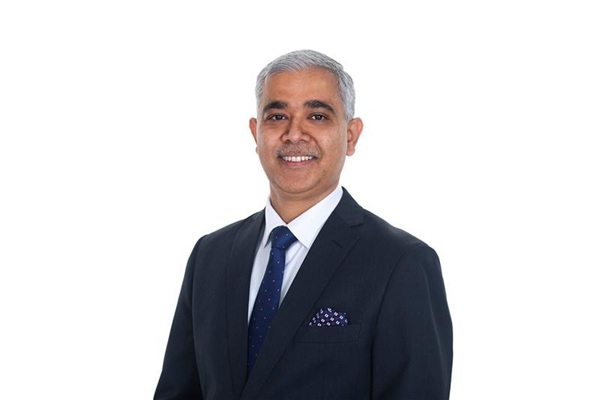|
Significant
transformations in GCC’s
healthcare landscape boost
investor confidence, driving
momentum across the value
chain: JLL
(DUBAI)
-
Robust
investor confidence and
dynamic market activity are
driving a profound
transformation within the
GCC’s healthcare sector as
investment volumes reach
nearly 400 transactions from
2021 to April 2025,
according to
JLL’s new
whitepaper, ‘Navigating
the GCC healthcare
investment landscape:
Trends, insights, and future
outlook.’ Saudi Arabia and
the UAE have dominated
investment activity,
accounting for almost 92% of
all deals, underscoring the
region's strong potential
and solidifying their status
as prime investment hubs.
The report spotlights how the
region’s demographic
expansion, strategic
government-led initiatives,
and a surge in digital
health adoption are
reshaping the region’s
healthcare investment
ecosystem.
Sandeep
Sinha, Head of Healthcare
and Lifesciences Advisory,
MEA at JLL, said: “The GCC
healthcare sector presents a
dynamic and rapidly evolving
investment landscape with
exceptional growth potential
across the healthcare value
chain. For investors, this
creates multiple entry
points for capital, spanning
digital health innovations
and infrastructure
development that ensure
sustainable returns while
advancing health outcomes.
As the market matures,
investors are prioritizing
strong value propositions,
supported by sustained
government commitment to
develop world-class medical
facilities, reinforcing the
sector’s position as a
strategic investment
priority.”
The JLL
whitepaper reveals that the
shift in the region’s
demographic profile has
created a highly favorable
investment climate. While
the health-conscious and
tech-savvy youth population
drives demand for preventive
care, wellness services, and
digital health solutions,
the fast-growing aging
demographic boosts demand
for specialized geriatric
services and comprehensive
chronic disease management
solutions.
National
transformation programs,
such as Saudi Vision 2030
and the UAE Ministry of
Health and Prevention’s
(MoHAP) 2023-2026 Strategy,
are also powerful catalysts,
actively injecting direct
capital and fostering
public-private partnerships.
The digitalization wave
sweeping across the
healthcare ecosystem has
further accelerated
strategic partnerships with
global technology leaders,
fueling investments in
health-tech innovations like
telemedicine and AI-powered
diagnostics. Advanced
digital infrastructure in
KSA and the UAE is improving
patient access and
efficiency, with initiatives
such as the UAE's Riayati
platform and Saudi Arabia's
unified Electronic Health
Records (EHR) systems
leading to a structural
transformation in how
healthcare services are
conceived, delivered, and
accessed, providing a strong
foundation for both domestic
and foreign investors.
The paradigm shift
toward patient-centered care
models is another growth
driver, increasing spending
on patient interaction
platforms, premium
facilities, and advanced
diagnostic technologies that
promote holistic patient
experiences.
JLL’s
whitepaper also reveals how
capital deployment has
evolved across different
healthcare subsectors.
Between 2021 and early 2025,
early-stage funding and
mergers and acquisitions
(M&As) emerged as the
predominant types of deals
within the GCC. Early-stage
investments concentrated on
health-tech and outpatient
services across wellness,
mental health, beauty and
skin care, and home care
sectors, while high M&A
activity (28%) in hospital
and clinic subsectors
indicates ongoing industry
expansion and consolidation.
The IPO landscape is
also maturing, levelling out
following a sharp increase
in 2021-2022. This reflects
strong investor interest,
with healthcare providers,
medical suppliers, and
pharmaceutical companies
leading market activity.
Market analysts expect more
IPOs soon due to impending
economic concerns, such as
the US tariffs and forecasts
of lower oil prices in 2026.
The JLL report has
identified several key
trends poised to strengthen
the GCC’s healthcare
investment landscape in the
near term. Investments
targeting digital health
solutions and telemedicine
platforms will continue to
grow, with larger funding
rounds expected for
established digital health
players. The health-tech
sector will see further
maturation, leading to
increased M&A activity as
larger entities acquire
successful startups to
incorporate innovative
solutions into their
existing healthcare
offerings.
Growth is
also anticipated in
specialized care, with
significant investments in
fields like oncology,
fertility, mental health,
and rehabilitative care. As
regulatory bodies across the
GCC—including Saudi Arabia's
Ministry of Health and
Council for Health
Insurance, along with the
Department of Health Abu
Dhabi and Dubai Health
Authority—implement
standardized care protocols
and patient pathways, these
frameworks are creating
structured investment
opportunities across the
healthcare spectrum.
A deliberate shift toward
domestic biotechnology and
pharmaceutical manufacturing
is expected to strengthen,
reflecting the industry’s
potential for long-term
growth and aligning with
national goals to enhance
self-reliance in healthcare.
The expansion of hospital
networks and specialty
clinics is another
investment trend, with
centers of excellence
fulfilling demand for easily
accessible, high-quality
care.
The JLL
whitepaper anticipates that
rising healthcare costs will
accelerate the adoption of
value-based care, driving
strategic investments in
technologies and services
that deliver measurable
health improvements while
controlling costs. Payment
models directly linking
clinical outcomes to
compensation will be crucial
for sustainable and
resilient market growth.
The report also
forecasts accelerated AI and
data analytics adoption,
with increased capital
directed towards solutions
that sharpen diagnoses,
optimize treatment, and
enhance operational
efficiency. The investment
momentum is also
increasingly directed
towards preventive
healthcare frameworks and
personalized medicine
solutions, including genetic
testing, longevity-focused
clinical programs, health
monitoring technologies, and
smart health coaching
platforms.
 PRINT
THIS ARTICLE
PRINT
THIS ARTICLE
|



